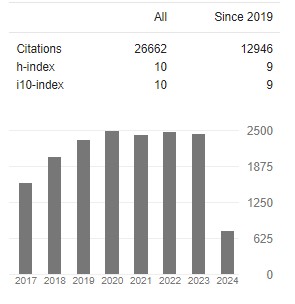Factors Influencing Farmers Adoption of Improved Technologies in Maize Production in Kuje Area Council of Fct-Abuja, Nigeria
Abstract
Loyce Zeniat Haruna, Samson Olayemi Sennuga, Joseph Bamidele, Osho-Lagunju Bankole, Funso Omolayo Alabuja, Tena M. Banabars
The purpose of this investigation was to examine the factors influencing farmers’ adoption of improved technology for maize production in Kuje Area Council of the Federal Capital Territory, Nigeria. Respondents were selected using multiple stage sampling approaches, and a well-structured questionnaire was employed to gather the primary data. Descriptive statistics and multiple linear regression analysis were used to actualize the objectives of the study. The demographics of the respondents showed that 81.8% of the rice farmers were men while 77.3% of them were married. The average household size of the respondents was 7.41 while the average age of respondents was 43.81 years, and this implies that a larger category of the respondents are still within the productive active age and can effectively engage in farming activities. Meanwhile, the average year of farming experience of the respondents was 11.77 years. Also, most (52%) of them had at least a primary school education, their average farm size was 1.54 hectares while the average income of the farmers was N55545.91. The findings showed that fellow farmers and friends and family members were the primary sources of knowledge about maize producing technology. The production technology with the highest level of adoption is early harvesting of matured crops. The regression analysis elucidated that educational level, member- ship of cooperatives and farm size significantly influenced the level of adoption of improved production technologies. It was recommended that creative ways should be developed by extension agents to make vital information available to farmers.




